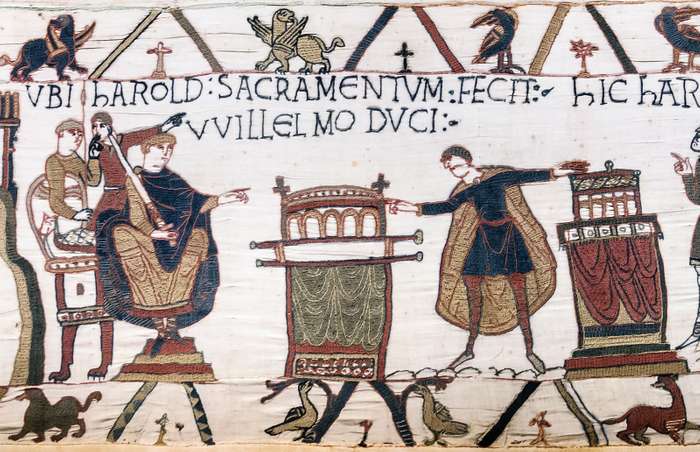Reading in an imaginary language (Bonus Glossary for The Wake by Paul Kingsnorth)

It’s not everyday you come across a book written in a made up language.
Each time I pick up ‘The Wake’ for a fresh look, I’m amazed again by all the layers of genius within.
Paul Kingsnorth created a ‘shadow tongue’ for his novel to reflect the feeling of Old English.
This book expects the reader to put in some genuine effort. No hand holding, no spoon feeding, and certainly no training wheels. There is only a partial glossary included, leaving many of the words for the reader to figure out as they go.
From the very first page you’re immersed in the strange, dark world of Anglo-Saxon England.
Once you sink into the language, you realise that the vocabulary itself is quite simple. But it is delivered with the weight of complex character development and dramatic tension.
i can feoht if i moste saes this cilde feoht the frenc lic thu does
feoht with what i saes
heorte saes this yonge cilde
The research and expert storytelling that has gone in to ‘The Wake’ make it an absolute masterpiece.
This is a book I can’t stop thinking about. I wish it would receive more recognition, but the challenge of overcoming the language puts many people off. I used an audiobook to help me get going.
I’ve put together these extra glossary terms. These are words I had to take a second look at while reading to figure out, hopefully it will help other readers.
Glossary
| BAN | The novel mentions ‘under the ban of wicce craft’. I’m unsure what ban was specifically intended to mean here. It could be bone, ban (prohibition), or banner. In Old English ban could mean a curse or a public proclamation. Buccmaster is trying to summon a goddess, and may be saying ‘come to me in spite of the ban on witchcraft’, or ‘witchcraft is part of your power (you’re under the banner of witch craft)’. |
| BAN | Bone (‘thu cuts all the ban in it and thu pulls up the ban and pulls his lungs out’) |
| CADDIS | Caddisfly larvae (The novel is referring to the wriggling, wormy life stage of a caddisfly insect.) |
| COOT | Coot, a type of bird |
| DABCIC | Little grebe, also called Dabchick, a type of bird |
| DICC | Ditch |
| DUN | Hill |
| EALU | Ale |
| FARAN | Faring, traveling |
| SCOC | Shook |
| STAN | Stone |
| ULE | Owl |
| WAEGN | Wagon |
| WATER WULF | Probably an otter |


What is a coot and a dabcic? Birds!